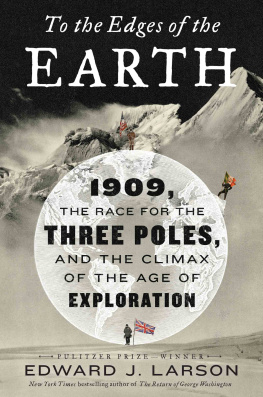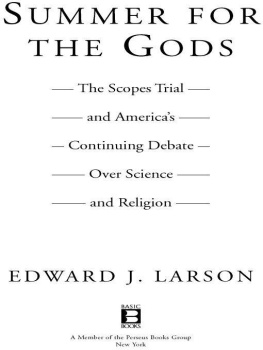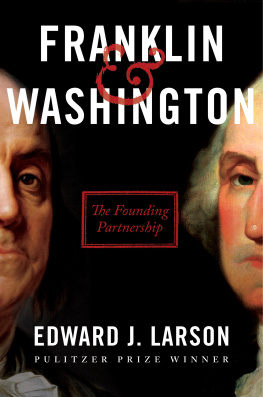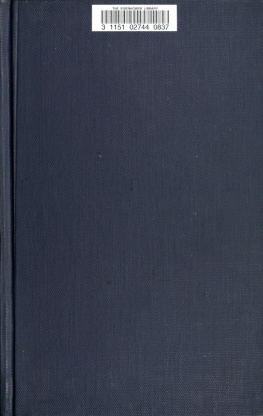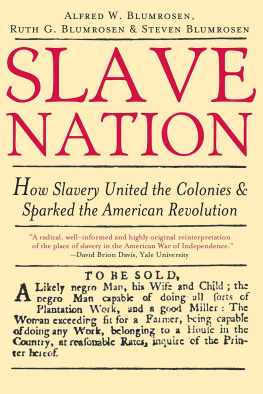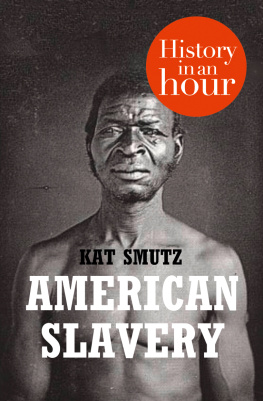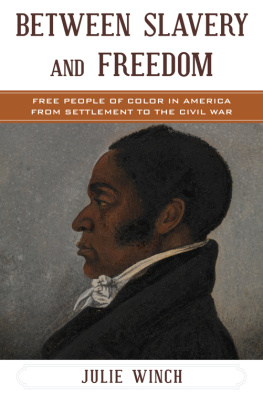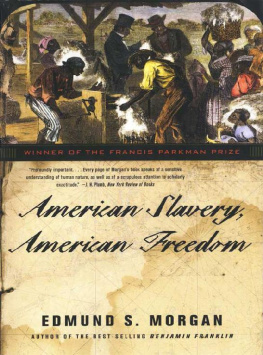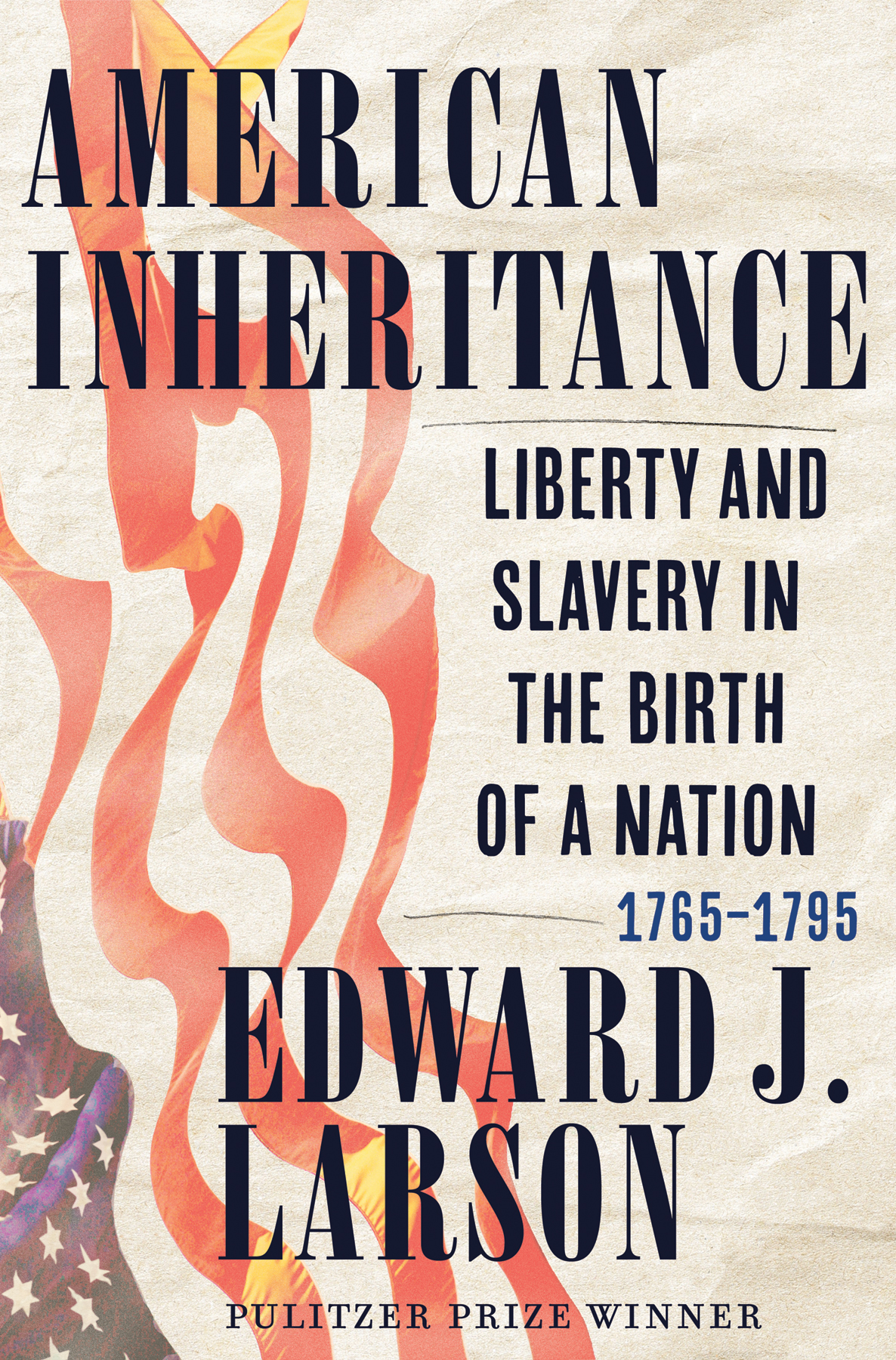Contents
Guide
Page List
American
Inheritance
LIBERTY AND
SLAVERY IN
THE BIRTH OF A NATION,
17651795
EDWARD J. LARSON

CONTENTS
The role of liberty and slavery in the American Revolution is a partisan minefield. Drawing on a popular narrative presenting the expansion of liberty as a driving force in American history, some on the right dismiss the role of slavery in the founding of the republic. Appealing to a progressive narrative of economic self-interest, and racial and gender bias in American history, some on the left see the defense of state-sanctioned slavery as a cause of the Revolution and an effect of the Constitution. Public debate over the place of liberty and slavery in the Revolutionary era has opened the way for rigorous historical scholarship to examine the subject in the tradition of such time-tested classics as Edmund Morgans 1975 American Slavery American Freedom and Benjamin Quarless 1961 The Negro in the American Revolution.
Where Morgan focused on seventeenth-century Virginia and Quarles concentrated on Blacks in the military, this book centers on the thirty core years of the Revolutionary era, 1765 to 1795, and broadens the lens to include Blacks and whites, patriots and loyalists, politics and warfare, and all the states from New England to the lower South. Women play a central part, from the enslaved Boston poet Phillis Wheatley to Martha Washingtons runaway maid, Ona Judge. This book includes a close study of two measures related to the controversy over slavery and the Revolution: the 1772 Somerset legal decision and Lord Dunmores Proclamation of 1775. Somerset, which held slavery to be so odious, that nothing can be suffered to support it, but positive law, found no such law in England. Slaveholders in the American colonies, where such laws did exist, considered Somerset derisive and unsettling. During the war, British promises of freedom for enslaved Blacks who turned against their patriot owners, which began with Dunmore, added to the outrage against imperial rule. Black Americans took their chances however they could find themfleeing or fighting for their liberty in an era turned upside down by revolution. We can gather their thinking through the voices, among others, of Wheatley, Judge, and Benjamin Banneker, and through the actions of Crispus Attucks, the first to die in the Boston Massacre, and Harry Washington, who fled from Mount Vernon to Dunmores banner.
The Revolutionary era changed the American understanding of liberty and slavery. Combining their rights-respecting English legal heritage with a New World sense of opportunity, political and economic liberty became the justification for independence and the founding ideal of the republic. In this context, perhaps because of their experience with race-based bondage, American patriots adopted and adapted the established metaphor of slavery used by English opponents of absolutism to express all that they abhorred about imperial rule. A lack of political agency, as the original metaphor implied to its English users, gave way in American usage to images of British bondage and brutality. We wont be their negroes, John Adams shouted against the British during the Stamp Act crisis of 1765.
Along with a sense of white liberty, Black slavery in a form unlike anything in England had emerged in Britains North American colonies and become central to the economic, political, and social life of the southern ones from Maryland to Georgia. Where is the difference between the British Senator who attempts to enslave his fellow subjects in America... and the American patriot who reduces his African Brethren to Slavery, the Philadelphia patriot and signer of the Declaration of Independence Benjamin Rush could ask, without the drafter of that document, Thomas Jefferson, ever offering a clear answer. Especially in northern states, a Revolutionary era embrace of liberty fired many revivalist Protestants, principled Quakers (who had long opposed slavery on egalitarian religious grounds), and reform-minded rationalists to reject race-based slavery. More so in southern states, for slaveholders and those who did not see Blacks as sufficiently American or even fully human, the Revolutionary era emphasis on individual rights could lead to a defense of property rights in enslaved Africans.
Countless Black Americans heard the cries for liberty and acted on them. In the North, enslaved Blacks such as Felix Holbrook and freed ones like Csar Sarter pushed their states to live up to the promise of liberty for all. In the South, with no prospect of freedom under patriot rule, invading British armies offered a means for personal liberation. One way or another, the American Revolution resulted in the first great emancipation of enslaved Blacks in the New World, with some finding freedom under the British banner and others gaining it from a liberty-inspired retrenchment of slavery in the North. The outcome was far from uniform as northern states moved fitfully toward abolition and southern states doubled down on slavery. Daniel Payne witnessed the contradiction firsthand. Having fled George Washingtons plantation when British troops invaded Virginia in 1780, Payne found freedom in British-occupied New York. He then watched from one of the last ships evacuating freed Blacks from the city as his former enslaver entered it as a liberator in 1783.
The tensions caused by differing conceptions of liberty and slavery in northern and southern states erupted at the Constitutional Convention, fractured state ratifying debates, and threatened to disrupt the first federal Congress. Southern leaders like South Carolinas C. C. Pinckney, a former Revolutionary War general and future two-time Federalist Party nominee for president, believed that these episodes left state-sanctioned slavery on a secure footing and primed for expansion westward. Others, like Virginias Patrick Henry, feared for the future of slavery in a federal union dominated by antislavery northerners.
Building on what came before, these episodes left an enduring legacy: a distinctively American heritage of liberty and slaverytwo intertwining strands of the national DNA. For all Americans living through those three decades, particularly for enslaved and free Americans of color, it became a time of promises kept and promises broken; hopes fulfilled and hopes dashed. Congress spoke to those promises in 1792, when the first law authorizing American coins decreed that each bear the singular motto Liberty, an aspirational affirmation that survives to this day. Along with the long shadow of slavery, the promises and hopes for liberty endure, firing the struggle for an enhanced American inheritance going forward.
EJL
New Haven, Connecticut
March 14, 2022
I n the beginning all the world was America. So wrote the gaunt, sharp-nosed English philosopher John Locke in his 1689 Second Treatise of Government about a place he never saw but played a major role in shaping.
Lockes allusion to America drew on the view, ascendant in Britain at the time, that because Native Americans held land in common and did not improve it, Britons could make America their own through occupation and cultivation. Doing so gave a sense of liberty (or at least empowerment) to European Americans but meant slavery for Native Americans.
An influential English Whig theorist, who like other Whigs of his era championed parliamentary supremacy over royal rule, Locke wrote his


